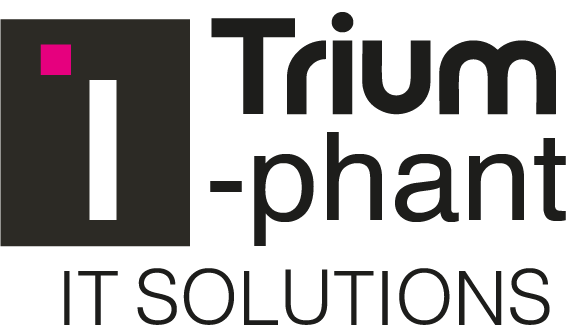You can save yourself the stress of maintaining physical data servers when you contract a cloud provider like AWS (Amazon Web Services) or AZURE for cloud computing services. However, integrating cloud technology into your business without a comprehensive evaluation could be risky. This is because cloud computing might not necessarily be ideal for some companies.
Understanding the cloud architecture, benefits, and drawbacks of cloud computing will help you decide if cloud technology is perfect for your business. These will help you determine what cloud technology has to offer your business and how it can help your organization expand. For example, the architecture of cloud computing is designed in a way to make businesses agile, scale automatically, and deploy globally in minutes effectively.
But are these reasons tangible enough to make you migrate to cloud computing? Read on to learn about the benefits and drawbacks of cloud computing to know if it is the right choice for your business.
What are the Pros and Cons of Cloud Computing?
Pros
1. Cloud Technology is Dependable with Increased Reliability
Increased reliability is one of the key benefits of cloud computing over a traditional on-premise server. A conventional server’s internal server arrays require manual upkeep. On one or two occasions, some crucial components might be improperly maintained, resulting in downtime for the business.
But since the architecture of cloud technology is set up so that the service provider is in charge of maintenance, every intricate aspect of this technology is managed by experts. Thus, making cloud computing reliable.
2. Cloud Technology is Cost Efficient
Due to the high initial cost of each new server and the setup costs, internal data storage is expensive for businesses. In addition, if your team has problems setting up or managing the cloud technology, you can find it difficult to locate assistance.
Due to the infrastructure costs being paid by your plan and shared by all of the service provider’s customers, you save money. You can use your service provider’s assistance to avoid the hassle of managing internal systems.
3. It Saves Time
Time is spent when looking for the best on-premise storage suppliers, receiving quotations, haggling rates, obtaining permits, and waiting for delivery. This whole procedure includes many administrative and managerial activities that waste significant time.
Top cloud service providers like Google Cloud or AWS and their offerings procedure don’t take long and save you a lot of work. In the cloud, system maintenance activities are also done automatically.
4. Access to Unlimited Storage Capacity and Better Security
You can buy as much storage as you need because the architecture of cloud technology is designed to give users access to an infinite amount of storage space. It costs less than continuously buying new storage hardware and software.
On the other hand, cloud providers ensure you get the best security for the services they offer your business. Your data is stored in places where it cannot be lost in the event of an attack using the highest level of data encryption programs.
5. Auto Backup and Data Recovery
With cloud technology, backing up files and restoring them is considerably simpler. This is because most cloud service providers manage the process of data backup and recovery. Since experts handle the processes, data backup and recovery are much easier than traditional data storage methods.
As a result, cloud technology may be the best option for companies looking to back up data at intervals.

Cons
1. You Will Have Limited Control Over Data in Cloud Technology
While the cloud service provider saves you time by taking on the duty of managing your data, you will have very little control over it. You can control the cloud-based services, data, and applications, but you cannot manage critical administrative tasks like accessing server shells or managing firmware.
2. Cloud Computing Requires an Uninterrupted Network Connection
This choice might not be the best for your company if it is located in an area with a history of network outages. For optimal functionality, cloud computing works best where there are stable networks. So this is a red flag if your company is in a remote location with a fluctuating network.
3. Security Challenges
Attackers are constantly looking for ways to access cloud-stored corporate data. If you hire an unreliable cloud provider, data security becomes a challenge. Therefore, allowing such cloud providers to manage your company’s cloud computing endeavor can be risky, especially when it is your first time using the cloud computing option.
4. Cloud Downtime
One of the inevitable drawbacks of cloud computing that you should be aware of before migrating is cloud downtime. As with other IT services, this includes technical issues like reboots, network outages, maintenance, and updating periods.
Conclusion
If you have read this blog to this point, you have the awareness needed to decide whether to migrate or not. You can access and manage cloud services and resources using platforms like Azure, AWS, and Google Cloud.
Remember, companies of all sizes and shapes use cloud technology for different purposes. These include:
- Data backup
- Software development and testing
- Disaster recovery
- Virtual desktops
- Big data analytics
As a reputable security company, we can guide you on how to migrate to cloud computing. You can avoid the hassle of implementing this service in your company by having us carry out the processes for your company.
So for all of your cloud/IT or security needs, contact us right now.
Related Posts
15th December 2022
Use of Shipping Label Printers in Business
A shipping label printer is a device that prints the barcode and order…
25th October 2022
The Basic Difference Between MFA and 2FA – Which is Better?
In the past, businesses relied on single authentication to confirm who was…
24th October 2022
Why Do We Need Virtualization – Top 5 Benefits
Before now, using a single machine for a single application was common across…




